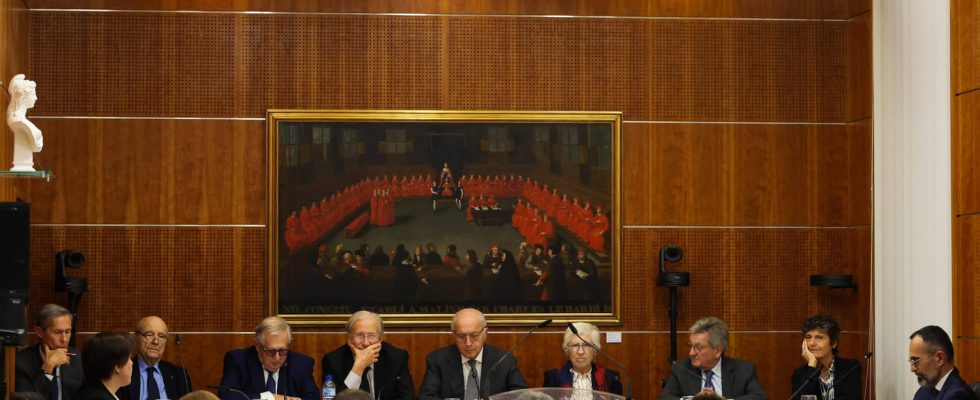According to Prime Minister Élisabeth Borne, several points are contrary to the Constitution in the newly passed immigration bill. The Constitutional Council has been asked to rule on the validity of these pending measures and could completely remove some of them.
Just passed in the Senate and the National Assembly, the immigration law was transmitted to the Constitutional Council yesterday, Wednesday December 20, by the President of the Republic in person. As a reminder, the Constitutional Council is an institution responsible, among other things, for monitoring the conformity of the law with the Constitution and the rights and freedoms that result from it. It is made up of nine members nicknamed the Sages, three appointed by the Head of State, three by the President of the National Assembly and three by the President of the Senate. Laurent Fabius (president of the Constitutional Council) and Alain Juppé are among these nine members. Former presidents of the Republic have the possibility of sitting as a full member for life.
And the immigration bill could experience new turbulence with the examination of the text by the Constitutional Council. Indeed, certain points deemed contrary to the Constitution could simply be rebutted by the Wise Men. “We expressed our doubts about certain provisions with the Republicans with whom we discussed” declared Prime Minister Élisabeth Borne yesterday at the microphone of France Inter. The Wise Men have the possibility of operating a total censorship of the project, in the same way as a partial censorship which seems more likely for this immigration bill carried by the Minister of the Interior Gérald Darmanin.
Immigration quotas and tougher access to social assistance under threat
The first measure threatened by the Constitutional Council is the establishment of annual immigration quotas. In other words, establishing the number of foreign people authorized to stay in France for three years on economic grounds. The measure also provides for the obligatory holding of debates on this subject in Parliament each year. This measure could constitute an “injunction” from Parliament to the executive (which would go against the separation of powers) and discrimination between two foreigners in a similar situation.
The text of the immigration bill may also be revised on the point concerning the payment of PLA. The new text plans to condition access to all social assistance on five years of residence in France for foreigners in a legal situation who do not work, including APLs. Foreigners who work will be able to benefit from social benefits after 30 months spent in France. The waiting period will be shorter only for the ALP which will be accessible to them after three months of presence. Measures based on the principle of “national preference” by the National Rally (RN) and which could be perceived as unconstitutional by the Constitutional Council, on the principle of a breach of equality before the law.
Finally, wise people should also look seriously at a new obligation for foreign students, that of paying a deposit to come and study in France. The immigration bill provides that the minister responsible for higher education can exempt “exceptionally” students with low incomes and whose excellent academic or university career justifies it. Pushed by the right, this proposal for a “student residence permit” could constitute a break in equality in the eyes of the Constitutional Council.
The Constitutional Council has one month to rule
Referral to the Constitutional Council involves the choice of one or more rapporteurs to examine the appeals. On the big day, a report is presented with a proposal for decisions. A vote takes place with, in the event of a tie, a casting vote for the president of the institution, Laurent Fabius. The Constitutional Council has one month to rule (the decision will surely take place in January 2024) except in the case where the government requests urgent examination of the text (article 61 paragraph 3 of the Constitution). The Constitutional Council must then rule within eight days of the referral. Once the measures contrary to the constitution are revoked, the law can be promulgated by the head of state.
